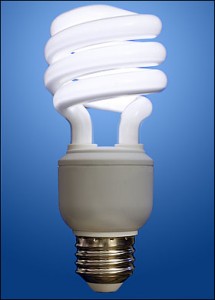 Late last year, a deal generated in the House blocked DOE from enforcing its energy efficient light bulb standards, which were set in place by the Energy Independence and Security Act of 2007. A Congressman has said he plans to offer an amendment to extend that ban when the House considers the 2013 spending bill this year.
Late last year, a deal generated in the House blocked DOE from enforcing its energy efficient light bulb standards, which were set in place by the Energy Independence and Security Act of 2007. A Congressman has said he plans to offer an amendment to extend that ban when the House considers the 2013 spending bill this year.
Efforts to block enforcement of the standards this year will likely face political resistance and many manufacturers, due to business and manufacturing cycles, plan to meet or exceed the standards regardless. Sen. Jeff Bingaman (D-N.M.), chair of the Energy and Natural Resources Committee, told E&E News that “As I understand it, they said a one-year [enforcement ban] was not an issue because they’d already geared up to meet the standard. But a continuation of a ban on DOE enforcing the efficiency standards is a very big mistake.”
Critics of the standards argue that they are an attempt by government to unduly influence consumer choice and freedom, and that they force consumers to purchase more expensive light bulbs. Supporters praise the standards, arguing that they offer environmental and energy security benefits, as well as cost-savings on energy bills that more than offset the higher initial price of advanced light bulbs.
Is the U.S. government within its rights to phase out a technology like less efficient light bulbs? What impact would you expect a continued ban on the enforcement of these standards to have on the lighting industry and consumers?
I don’t think the government is within it’s right to dictate what consumers buy in a general sense. Precedents for ‘phasing out’ items is questionable…. there is rationing during the… Read more »
[…] It seems difficult to find areas of consensus on energy policy these days. For example, energy efficiency once received significant bipartisan support. That’s no longer the case. […]
[…] Saving Energy Efficient Light Bulb | Read Sources […]